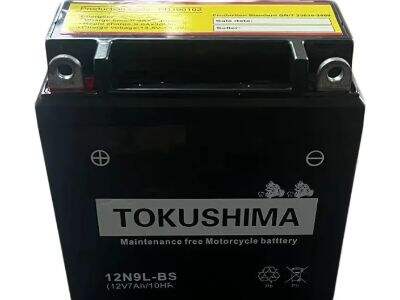There are a few things to consider when deciding which battery to get for your home. You have to think about how much energy you need, which type of battery works for you, how big the battery should be, where to install it and how much money you have to spend. So let’s explore these things to make it easier for you to determine which is best for your home.
Knowing Your Energy Requirements
First, consider what it costs to power your family daily. Are you a heavy energy user because you have lots of things that consume electricity, such as lights, computers and televisions? Or are you consuming less power because you only have a few things to power? And once you know how much energy you want, you’ll be able to determine which battery would be right for your house.
Lead-Acid vs Lithium-Ion
Your two primary types of batteries are lead-acid and lithium-ion. Older and more affordable lead-acid batteries are heavier and require more maintenance. Lithium-ion batteries are more recent and lighter, but are also more expensive. What you should be considering is whether or not a car battery is the best type for your home and household needs given how much you are willing to spend.
Assessing Battery Charge and Voltage
House batteries You need to consider both battery capacity and voltage when selecting a battery for your home. Capacity is how much energy, in amp-hours, the battery can store; voltage is how much power, in volts, it can dish out. The battery of your choice will need to have a highAh capacity and voltage, enabling you to power your home and family. Choose a battery with too little capacity or voltage, and you could be left in the dark when you need power most.
Space and Installation Considerations
Before you commit to buying a battery for your home, consider where you would put it and how it would be installed. Some batteries are meant to be inside, some can be outside. You also have to consider how much real estate you have for the battery. Make sure you also select an automotive battery that fits the space and is simple to install.
Setting a Budget: Up-Front Costs & Savings Long-Term
Finally, consider how much you are willing to spend on a battery for your home. Lead-acid batteries are less expensive up front but require more maintenance and could end up costing more in the long run. Lithium-ion batteries, on the other hand, are initially more expensive, but demand less maintenance and can put money back in your pocket in the long run. The first step is to consider your budget and how much you would like to spend on a best car battery system for your home.








 EN
EN
 AR
AR
 BG
BG
 HR
HR
 CS
CS
 DA
DA
 NL
NL
 FI
FI
 FR
FR
 DE
DE
 EL
EL
 IT
IT
 JA
JA
 KO
KO
 NO
NO
 PL
PL
 PT
PT
 RO
RO
 RU
RU
 ES
ES
 SV
SV
 TL
TL
 ID
ID
 SR
SR
 SL
SL
 VI
VI
 SQ
SQ
 HU
HU
 TH
TH
 TR
TR
 MS
MS
 GA
GA
 MK
MK
 HY
HY
 AZ
AZ
 BN
BN
 MN
MN
 MY
MY
 KK
KK
 UZ
UZ
 JOZO GROUP
JOZO GROUP
 JOZO GROUP
JOZO GROUP


